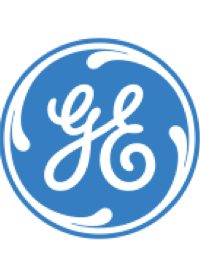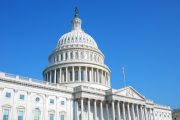
While half of all Americans do not pay federal taxes, placing the entire tax burden on the other 50 percent of the nation, it may perturb those who do pay taxes to learn that one large multinational company is exempt from that tedious and expensive task as well: General Electric.
Though GE, the largest corporation in America, reaped over $14 billion in profits last year, it did not pay a single penny in taxes in 2010. To boot, the company actually claimed $3.2 billion in tax benefits.
The New York Times reports:
The company has been cutting the percentage of its American profits paid to the Internal Revenue Service for years, resulting in a far lower rate than at most multinational companies.
Its extraordinary success is based on an aggressive strategy that mixes fierce lobbying for tax breaks and innovative accounting that enables it to concentrate its profits offshore. G.E.s giant tax department, led by a bow-tied former Treasury official named John Samuels, is often referred to as the worlds best tax law firm. Indeed, the company’s slogan “Imagination at Work” fits this department well. The team includes former officials not just from the Treasury, but also from the I.R.S. and virtually all the tax-writing committees in Congress.
GE is one of the few entities with the ability to successfully lobby for tax breaks and then benefit from them.
Perhaps the best example of the chummy relationship between the U.S. government and General Electric can be found in the following, as the Times continues:
The head of [GEs] tax team, Mr. Samuels, met with Representative Charles B. Rangel, then chairman of the Ways and Means Committee, which would decide the fate of the tax break. As he sat with the committees staff members outside Mr. Rangel’s office, Mr. Samuels dropped to his knee and pretended to beg for the provision to be extended a flourish made in jest, he said through a spokeswoman.
Ironically, the tax system was overhauled in the 1980s under President Ronald Reagan, who learned that GE was among dozens of corporations that relied on accounting gamesmanship to avoid paying taxes. In response, Reagan advocated a change to the tax system that closed the loopholes used by General Electric, forcing them to pay a higher effective rate of over 30 percent.
At the time, President Reagan told his Treasury Secretary, Donald T. Regan, I didn’t realize things had gotten that far out of line.
By the time the 1990s rolled around, however, the New York Times indicates that GE and a number of other financial firms won a change in law that would allow multinationals to avoid taxes on some kinds of banking and insurance income.
As it pertains to GE, the change allowed the company to do business out of the country and not have to pay American tax on the interest income as long as the profits remained offshore.
Now that GE’s CEO Jeffrey Immelt serves in the Obama administration as the Chairman of the Council on Jobs and Competitiveness, one would expect the preferential treatment to continue. In fact, Obama and Immelt are set to discuss reforming the corporate tax code together.
Exemption from federal taxes is just one of the many perks for GE. The company has reaped the benefits from the political clout of George Soros Center for American Progress with the Obama administration, as CAP encouraged the President to move California to smart grid technology, and he did. Guess who owns that smart grid?
Apparently it pays to have friends in the White House.
Naturally, the relationship between General Electric and the Obama administration is not simply one-way. When Obama’s preferred local bank, Shorebank one that is heavily engaged in the financing of green projects and green jobs with a long list of ties to both the Obama and Clinton administrations risked financial collapse and closure, Obama saw to it that the bank received TARP money, even though 10 other banks in the area were permitted to fail. However, the bank also required matching funds from private institutions in order to receive the government bailout money. Companies such as Goldman Sachs, Citigroup and General Electric came to both Obama’s and Shorebank’s aid.




